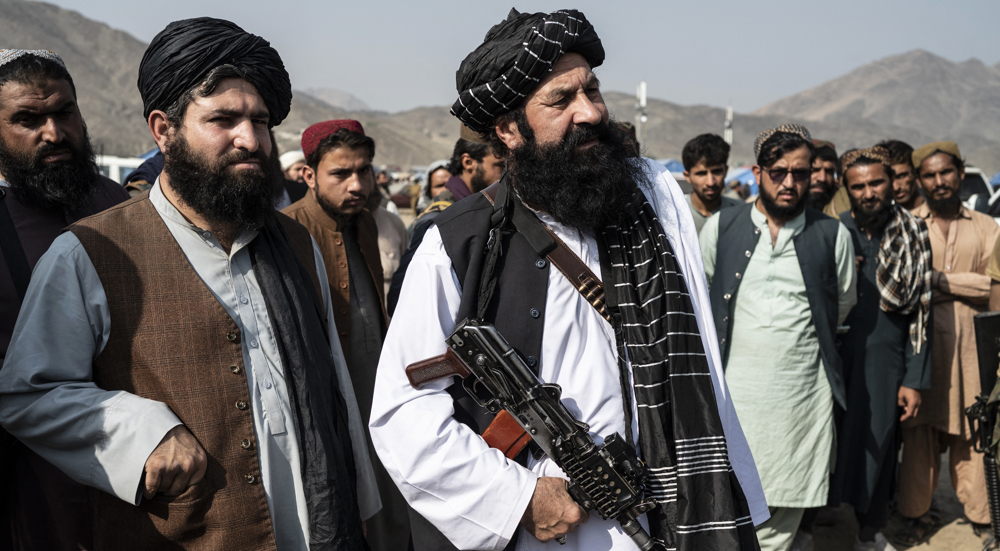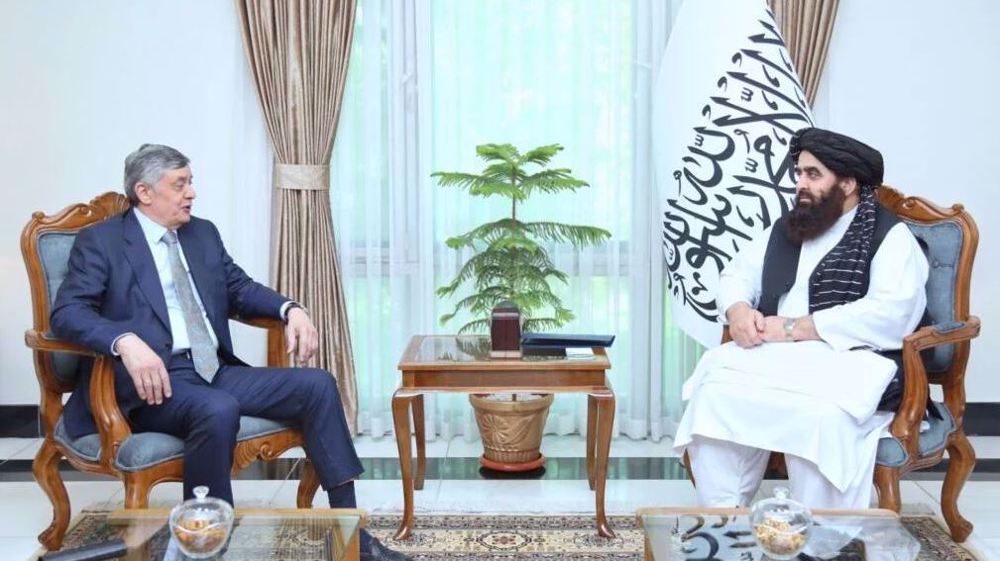Pakistan must crush militant hideouts, says Afghan president
Afghan President Ashraf Ghani says abolishing militant hideouts in Pakistan is key to establishing peace in neighboring Afghanistan.
The Afghan leader made the remarks on Thursday before meeting US President Donald Trump on the sidelines of the 72nd UN General Assembly in New York.
"Reduction of safe havens is absolutely necessary," Ghani said.
"I hope that this time, Pakistan will get the message loud and clear that business as usual cannot continue. It's not in their interest. It's not in anyone's interest," the Afghan president added, stressing, "Pakistan has never had this type of dialogue with the US and I hope that wisdom and shared national interests will prevail."
Pakistan and Afghanistan regularly accuse each other of sheltering militants. Both sides, however, deny such an allegation.
In early June, Ghani accused Pakistan of instigating an “undeclared war of aggression” against his country.
Elsewhere in his remarks, Ghani, however, stressed that Pakistan's role was a key part of the Trump plan announced last month to end America's longest war in Afghanistan.
Last month, the Trump administration infuriated Pakistan by accusing it of providing extremists haven. The US also threatened to withhold military aid from Pakistan.
“We can no longer be silent about Pakistan’s safe havens for terrorist organizations, the Taliban and other groups that pose a threat to the region and beyond,” Trump said in a major speech outlining US policy on Afghanistan on August 22.
Successive US governments have criticized Pakistan for links with the Taliban militants and for harboring slain al-Qaeda leader Osama bin Laden.

Senior civilian and military officials in Islamabad have frequently said the US government is making Pakistan a scapegoat to cover Washington’s failure in Afghanistan.
Trump hails anti-Taliban efforts
After meeting Ghani, Trump praised efforts to drive the Taliban and other militant groups out of Afghanistan.
He said joint Afghan-US forces have made headway against Taliban, "hitting them hard and hitting them effectively."
Trump's plan for Afghanistan reportedly involves sending thousands of additional US troops on top of the roughly 8,400 Americans now in the country.
Afghanistan has been gripped by insecurity since the United States and its allies invaded the country as part of Washington’s so-called war on terror in 2001. Many parts of the country remain plagued by militancy despite the presence of foreign troops.
During the past 16 years, the Taliban militants have been conducting terrorist attacks across the country, killing and displacing civilians.
In addition, the Daesh Takfiri terrorist group, which is mainly active in Syria and Iraq, has recently managed to take recruits from Afghan Taliban defectors.
Militants are now launching attacks on both Pakistani and Afghan soil.
VIDEO | Yemenis praise the military for its successful operations against Israel
VIDEO | Israel continues to bomb Gaza homes
VIDEO | An insider's view of the country: Meybod City in Yazd
‘All wars have rules. All of those rules have been broken’ by Israel
VIDEO | Report flags India’s violation of rights of Rohingya detainees
Turkey's foreign minister meets Syria's de facto leader in Damascus
VIDEO | US Syria plots
'Next to impossible' to rescue patients from Gaza's Kamal Adwan Hospital: Director










 This makes it easy to access the Press TV website
This makes it easy to access the Press TV website